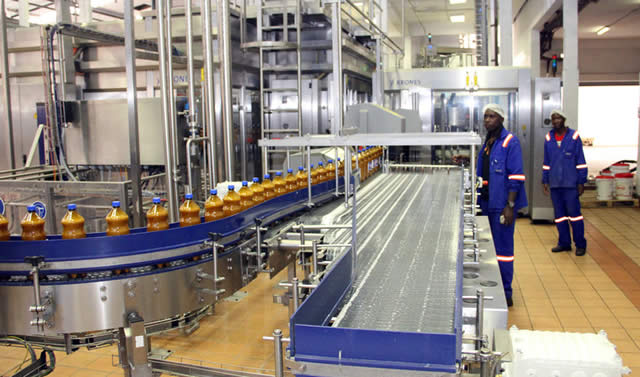EDITORIAL COMMENT: Companies should emulate Delta Beverages

 Managing value chain systems appears to be a mammoth task for companies in Zimbabwe in particular and the world in general. After mishandling the firm’s value chain system, there is a general trend by many to just pass this burden of incompetence or maladministration to the consumers. When that happens consumers are bombarded with many technical terms as the elites try to escape the blame for the increases in the prices.
Managing value chain systems appears to be a mammoth task for companies in Zimbabwe in particular and the world in general. After mishandling the firm’s value chain system, there is a general trend by many to just pass this burden of incompetence or maladministration to the consumers. When that happens consumers are bombarded with many technical terms as the elites try to escape the blame for the increases in the prices.
From a snap analysis, there appears to be less problems with primary activities of the value chain that include inbound logistics, operations, outbound logistics, marketing and sale and after-sales services. The major challenge is with the support services that include; procurement, human resource management, infrastructure, technology development and the firm’s infrastructure. This, to many companies, has become a major cost driver as people cut deals during procurement or give too many benefits and perquisites to employees, especially management that the firm cannot manage to sustain.
To this effect, Delta Beverages, as we reported in our business section yesterday, took a bolder stance that will have far reaching ramifications to the pricing system in Zimbabwe, when it declared that its suppliers should carefully manage their value chain and desist from the temptation to hike prices. In a memo sent out to suppliers by the company’s Supply Chain director Cynthia Malaba dated October 16, 2017, the beverages giant noted that it has been inundated by appeals from its suppliers who are seeking to hike prices due to the increasing cost of foreign currency.
Rightly so, the group flatly turned down the proposals, which would have seen them passing the burden to consumers through price hikes. The beverage group, rather, said the suppliers should manage their value chains or opt out of supplying the group if they can’t continue with current rates. Quite intriguing from the firm and what it means is the consumers of the firm’s beverages should not expect any price increases in the foreseeable future. Yes, that is the right attitude our industries should adopt.
When an economy experiences tremors or shock of some sort, we expert all players in all sectors of the economy not to react by increasing prices or passing the burden to the consumers of their products. By doing so, the impression the business sector is conveying to the people is that they are a special breed of citizens that should not be affected by the turns and downs of Zimbabwe. That is a poor and catastrophic thinking by Zimbabwe’s corporate citizens. When the country suffers from challenges such as foreign currency shortages, the corporates should re-examine their value chains and find out where they can remove unnecessary cost drivers without compromising quality.
In the process, many will realise that there will be no need to increase the prices because somewhere in the value chains, there will be some unwanted costs that were creeping in, pushing the price of commodities up. Inefficient transport system, poor warehousing leading to high costs, inexperienced work force that result in wastages, antiquated technologies among other things might be key cost drivers that can be easily eliminated and keep the price constant or even come down. Like the message Delta is driving to all companies, it pays to be a good and responsible corporate citizen that seeks solutions to problems affecting the country rather than passing the burden to the consumer whenever there is a problem. Companies should learn to absorb some of the tremors caused by some economic disturbances instead of rushing to choke their customers, whom we believe are the life blood of all companies.









Comments